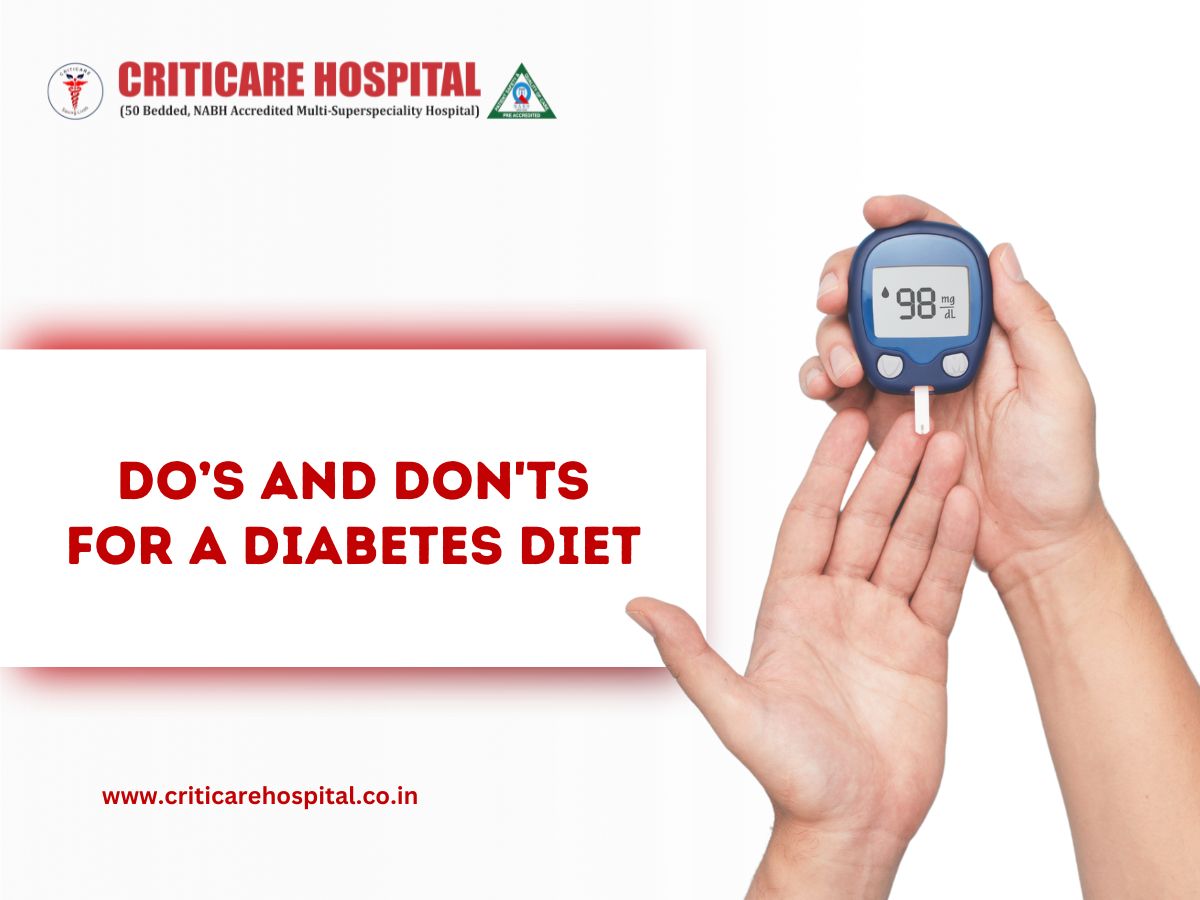To manage diabetes, insulin is usually made available to patients, along with a diet that helps maintain blood sugar levels. Diabetes management does not end with the prescribed diabetic diets, such as the ones outlined above. They have been shown to significantly reduce or abolish blood sugar levels, therefore preventing complications of various kinds and locations in terms of organs such as those affecting the heart, kidneys, or even the peripheral nervous system. This blog will go through the important things regarding the diabetes diet and what should be done and what should not be done while taking full charge of health and keeping this disease away.
Importance of a Healthy Diabetes Diet
Subsequently, balanced meals could be seen as paramount for a diabetic person. What you eat has an immediate effect on blood sugar levels and hence is key in diabetes management. An excellent diabetes diet keeps blood sugar under control, upholds heart health, and helps maintain an ideal weight.
Dos of a Diabetes-Friendly Diet
These are simple things and foods that you can do to help in your diabetic management; they are good for your health in general:
Intake of raw, unrefined, and diverse foods
The fresh, unrefined foods, in short, should contain vegetables, fruits, whole grains, lean proteins, and healthy fats. The more nutrient-dense these foods tend to be, the more slowly they would usually raise blood sugar. Whereas junk foods spike blood sugar fast.
Examples include:
- Veggies: spinach, kale, broccoli, carrots
- Fruits: Berries, apples, oranges
- Whole grains: brown rice, quinoa, oat
- Lean protein: chicken, turkey, fish, tofu
- Non-drug fat: olive oil, avocado, nuts, etc.
Eat More Fiber-Food
Fibers help in delaying sugar absorption into the blood, which helps control blood sugar. High-fiber foods also help digest food and lower cholesterol.
Some very accessible sources of fiber are:
- Beans and lentils
- Whole grains: brown rice, barley
- Vegetables: broccoli, sweet potatoes
- Fruits: apples, pears, berries
Watch Your Carbs
Since carbohydrate food greatly influences blood sugar, it must be known which type and which portion to go for. There is no reason for totally avoiding carbohydrates; rather, try to take complex carbohydrates such as whole grains as opposed to simple sugars.
Some suggestions are:
- Do some carb counting to better help in monitoring yourself.
- Prefer whole grains over white bread and pasta.
- Make sure to control your portion size.
Keep Hydrated
Water flushes out excess sugar from the body through the kidneys and prevents dehydration. Avoid sugary beverages like sodas since they might amplify blood sugar spikes.
Tip: Drink about eight glasses (2 liters) daily.
Lean Protein
These protein levels help stabilize blood sugar and aid with satiety without raising it. Ensure each meal contains some source of protein, especially lean sources.
Examples:
- Skinless poultry (chicken or turkey)
- Fish (salmon or tuna)
- Plant-based protein sources (tofu or tempeh)
- Low-fat dairy and eggs
The Don’ts of a Diabetes-Friendly Diet
Things that you should never do to keep your blood sugar level within limits:
Do Not Miss Meals
If one skips a meal, the blood sugar levels will still fluctuate. That may then lead him to eat more when he resumes eating, leading to an increased blood sugar.
For instance: Setting an eating schedule and eating meals and snacks evenly through the day.
Sugar Foods and Drinks Alone
Sugary foods and drinks cause a fast rise in blood sugar. That is why they should be avoided or, if not, limited in consumption.
What to avoid:
- Soft drinks and sweetened beverages
- Candy, cookies, and cakes
- Packaged snacks and desserts
Do Not Eat Refined Simple Carbs
Refined simple carbs like those in white bread and white rice shoot up the blood sugar tremendously. Better stick to whole grains
Not to eat:
- Whole wheat bread
- Brown rice, quinoa
- Sweet potatoes
Limit Fried and Fatty Foods
Some types of fat are okay, but fried and unhealthy fats (especially trans fats) usually harm the heart and promote weight gain, which are risks for diabetic patients.
What not to eat:
- Fried foods (such as French fries and fried chicken)
- Fast foods with trans fats (processed snacks would be somewhere in this category)
Do not overindulge in alcohol
Moderate alcohol consumption can be good for some people with diabetes, but overindulgence brings along unpredictable happenings such as blood sugar levels fluctuating or even interfering with medication.
Advice: Drink moderately (1 glass for females, 2 glasses for males). Eat while drinking; it helps avoid low blood sugar.
Don’t Overeat
Even healthy foods, if eaten in abundance, trigger spikes in blood sugar levels. Concentrate mainly on healthy portion sizes and try a little bit of mindful eating for prevention against overindulging.
Tip: Use a food diary or portion plates to keep track of your consumption.
Conclusion
Following the dos and avoiding any Don’ts reduces the chances of time-related fluctuations in blood sugar levels and ensures a good quality of life and fewer complications. A doctor or nutritionist is always the best for a customized diet plan, as the specific needs may vary with the case in question.
Small changes in your eating methods can expunge a lot of how you feel. By recognizing the differences between individual whole foods, balanced meals, and awareness regarding portion size, you are on your toes toward a fuller life with diabetes.




